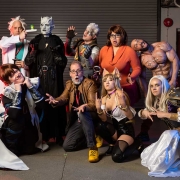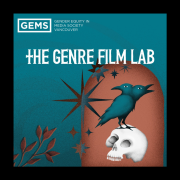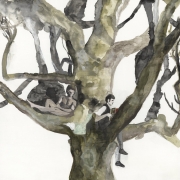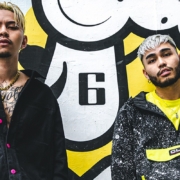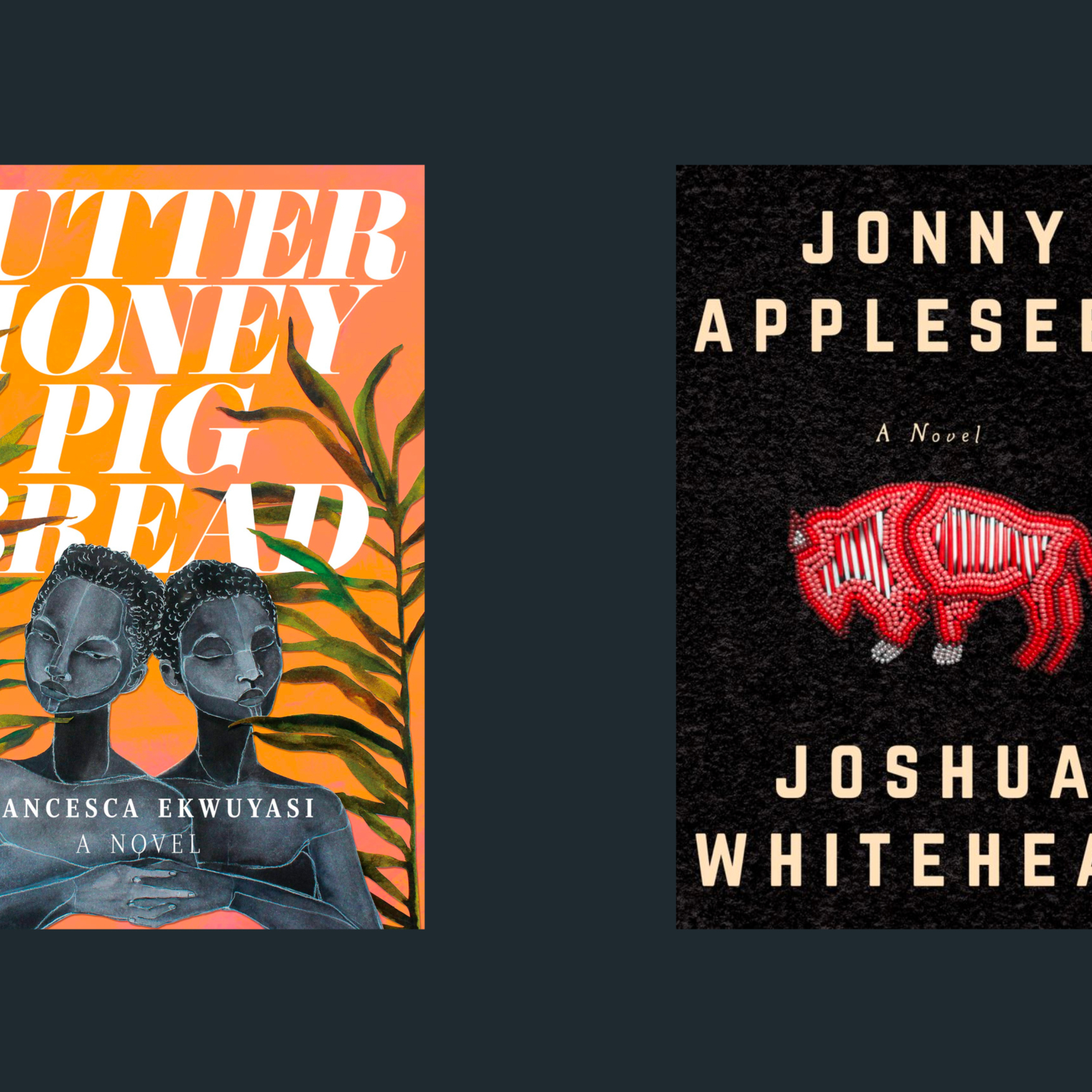For Christopher Steffler, empathy and advocacy are everything. Evident in his work, he has devoted his music career to breathing life and visibility into each of his projects and artists.
Christopher is the owner and founder of Vancouver-based Mercury Artists, a record label and creative management company for artists and brands. He is also the Executive Director of LIFERA Sober Living, a newly formed Addiction Recovery resource for Canadian families. His journey in the music industry began not long after his journey of sobriety from addictions began. With support from the community, Christopher has worked with Canada’s largest addictions recovery centres, along with community centres to create opportunities for recovering addicts to offer respite and healing to those with addictions.
More recently, he has been nominated for a Courage to Come Back Award for overcoming his addiction and homelessness, efforts to reduce stigma around addictions, support, advocacy for women and seniors’ organizations, and work to elevate the musical endeavours of those who still struggle with addiction.
Today, we’re proud to share his story of steadfast commitment to his community.
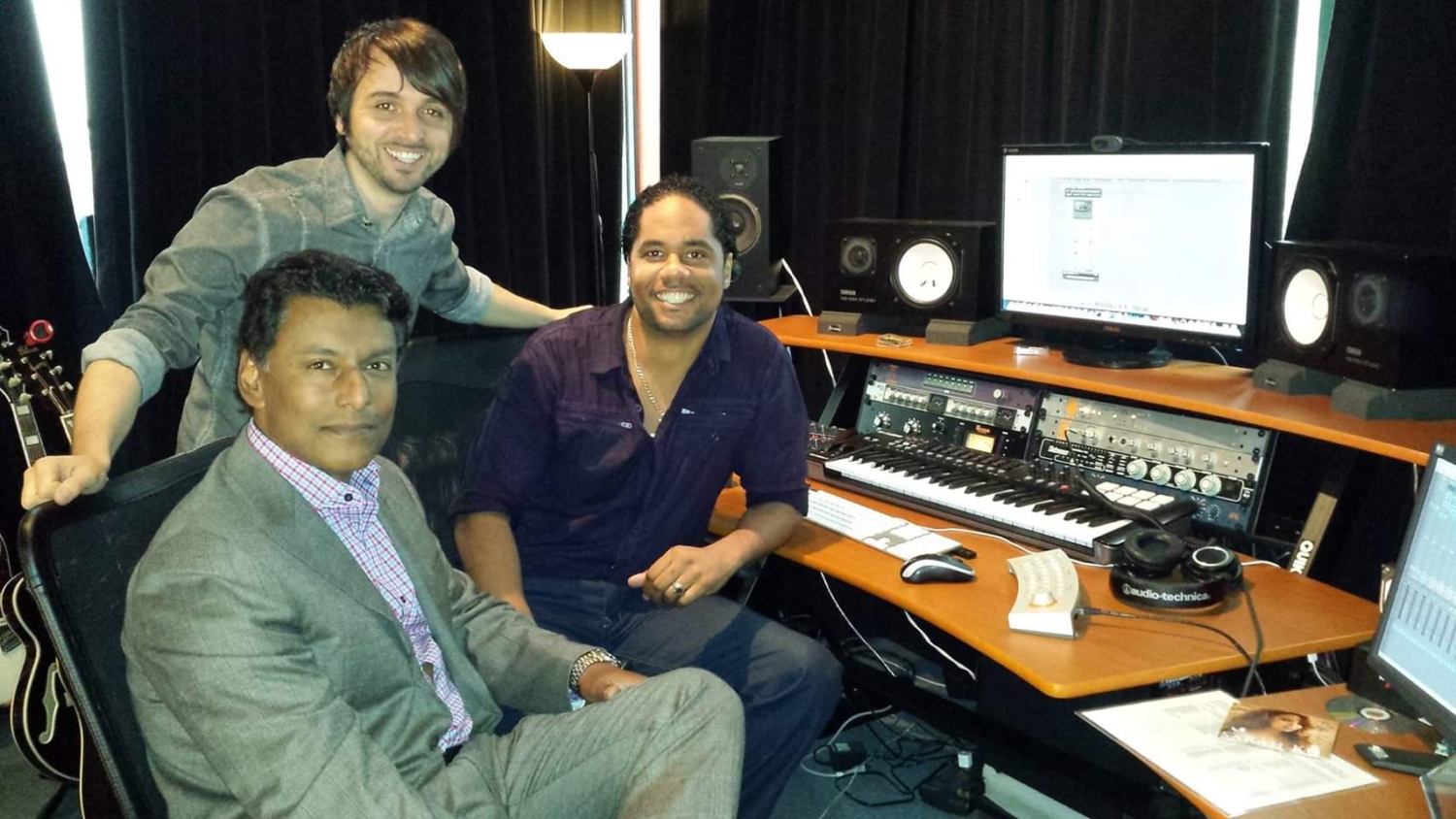
Chris Steffler (right)
Congratulations on your nomination for the 2020 “Courage to Comeback Award”. Tell us a bit about the award
The annual Courage To Come Back Awards are presented by the Coast Mental Health Foundation and recognizes people who have overcome illness, adversity or addiction and who have ‘come back’ and ‘give back’ to their communities. I have been nominated for overcoming addiction and homelessness, my efforts to reduce stigma around addictions and advocacy for vulnerable men, women and seniors, my ongoing work with BIPOC and marginalized people, and my work to elevate the musical endeavours of those who still struggle with addiction.
“I am very humbled to have been nominated for this award, and hope it reminds us all that anything is possible.”
Christopher Steffler
How has your addiction and recovery influenced your journey in the music industry?
First of all, there would be no “journey in the music industry” had I not gotten sober. Everything I have accomplished until now is as a result of my sobriety. I think it is accurate to say that my addiction and years living homeless and in Vancouver’s DTES, exposed me to a level of depravity that was so dark and desperate that I would never want to return. My recovery on the other hand, has shown me a level of grace that I never want to let go of. Seven treatment centres, countless detoxes, years of isolation and yet a full recovery has shown me that we need to believe in ourselves, and that anything is possible. This simple concept is etched into me like stone. I use this guiding principle when I work with anyone who desires to illuminate their passions and creativity. Like with addiction Recovery support, so much of what I do in the music industry is trying to find a way to translate something personal into something that will genuinely resonate with others. The goal is for listeners to feel comfort or connection with a piece of music. It really feels like I’m feeding my sobriety when I am involved in helping someone realize their musical aspirations.
Tell us about your journey within the music industry and beyond
About 2 years into my sobriety I made my first strides in the music industry as an Artist Manager. It happened in a roundabout way. Previously I had represented visual artists in Edmonton with an Agency I created, “Crane and Lion Artworks”. We worked directly with advertising agencies to help them connect with fine artists for “extraordinary” visual installations. Our biggest projects were in West Edmonton Mall where we created a number of large murals inside and out. Ironic only now, we worked with every major beer and spirit brand across Canada as well.
At some point I decided to move out West where I began working at a Port Moody Art Gallery as their business manager and co-curator. We hosted lots of amazing art openings and won Business of the Year a couple of times. It was during this time that I enrolled in the BC Alliance For Arts and Culture program in Vancouver to learn more about art contracts, copyright law, reproduction, licensing, and a number of other subjects that supported my knowledge of representing people in the creative arts. After completing this, I began to focus on a small roster of visual artists, and worked to help them sell their work and grow their footprint in the art scene and online, which was new at the time.
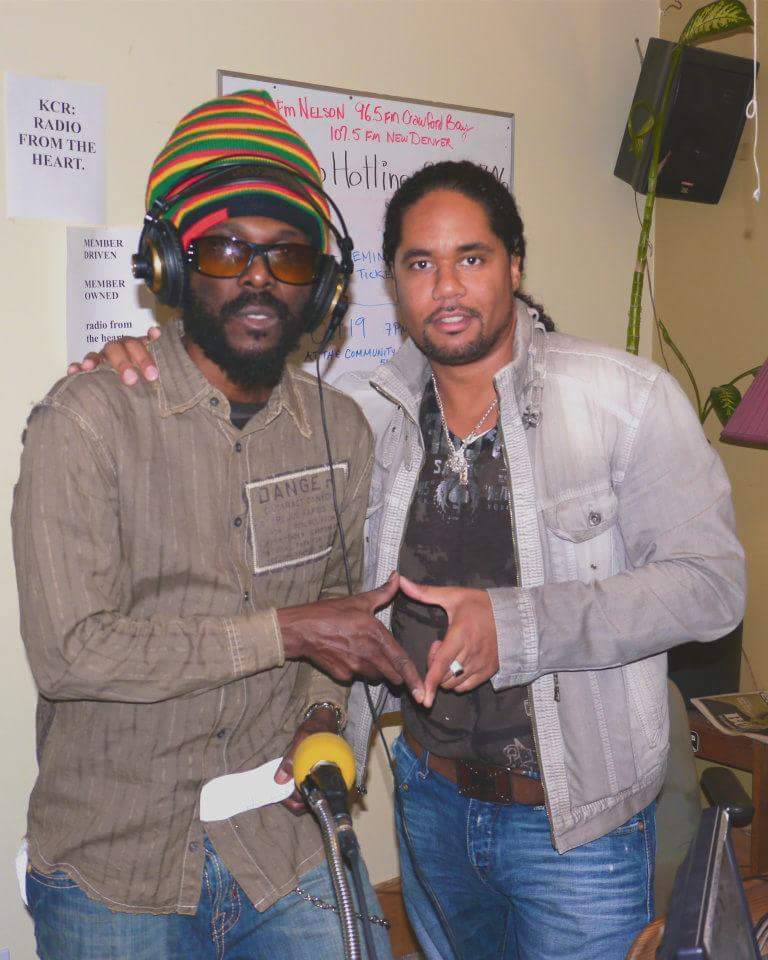
Chris Steffler (right)
I had always had a passion for music and songwriting, so it seemed logical to apply what I had learned to a growing need for guidance in the music industry. As a teenager, I was always hanging out with friends in some house, garage or closet studio being creative, maybe even writing a hook here and there for someone. As a project-loving personality, I immediately wanted to learn more about music creation and promotion. Now I was in Vancouver, going to shows and meeting creative people, musicians. After having some engaging conversations, it became blindingly apparent that artists; whether visual or performing, struggled with the same thing. Self Promotion. Everyone had a level of comfort on how to create music, but they didn’t know how to properly represent themselves or their art. Right here is when the spark was lit for me. In 2012 “Mercury Artists”, took on our first artist, Vancouver Rnb Singer Sarah Eske. A year later she released her first full-length album. In the beginning, I had to be a ‘jack of all trades’, but soon I had developed amazing relationships with engineers, producers, videographers, songwriters, grant writers, radio promoters, graphic designers, website developers to create a 360-degree creative team. Now we are able to assess where an artist is on their path, and then work to fill in the missing pieces they needed to make sure their brand and music are launched with maximum effect.
It was through this process that I created the record label, Element-80 Records Inc. To this day we have commercially released over 125 masters in RnB, rap, dancehall, reggae, afro pop, rock, EDM and piano instrumental genres, with artists from around the world. We also grew to have a number of Vancouver and B.C.-based artists. All had great music, but needed to get up on stage. I worked with pretty much every live venue and social houses in Vancouver and across B.C. to maintain the live music scene by bringing new musical acts to their stages. Rarely did we get paid a “guarantee” for performances. It was always whatever we brought in at the door. So it didn’t take me long to realize I had to get into the event promotion side of the music industry. I didn’t just have to promote artists, if we wanted great shows, we would have to produce them ourselves. It began with just a few events and venues a year, to us curating about 30 acts/shows for private clients, and over 15 venues in Metro Vancouver and beyond.
Each summer we produce an outdoor festival called Lucha Libre Spectacular, that showcases at least 10 B.C.-based musical and performance artists or groups. At some point, I began to appear on CBC The National with Ian Hanaomansing. He would often have me on the show to talk about breaking news in the music industry. Sometimes it was about Spotify royalties, and other times it was about the passing of Prince or some other icon. It was always a great experience and also allowed me to shine some light on our local music scene and artists while on camera. Now I find myself working with artists from around the world. I have had songs playing on TV and radio on all four corners of the globe in multiple languages. I have had the opportunity to work with people who have such amazing stories to tell through their music. I have always liked “projects”. I like building things in order to expose more people to the arts; it has always been my passion.
Do you have a memory that you hold close to you throughout your journey?
Yes….I have many, but the most important one is the memory of my last day on the streets before I went into detox for the last time. Without going into any of the gory details, I truly believe that my sobriety and the removal of my obsession to use, is mostly preserved through my crystal clear memory of just how bad it was. Just how bad I felt. Just how alone and sick I was. Just how weak and vulnerable I had become. The smell of my downtown SRO, and the screams from down the hall are all memories etched into my mind. They remind me of where my addiction took me, and not allow me to forget or backslide on my gratitude.
Your lived experiences have catalyzed you to become an advocate in the destigmatization of addiction in the industry, can you tell us how you elevate and support artists through your company, Mercury Artists?
My story of addiction starts as a tragic tale of guilt, shame, fear, and hopelessness. For years I would walk the streets homeless and addicted feeling like I was separate from society. I felt invisible and resigned to the fact that I would probably die in some DTES alley. But at some point, I received a gift of hope. After multiple treatment centres, I finally believed spiritually that a guy like me could recover. The person who gave me this hope was a 72-year-old Indigenous man who was a survivor of residential schools, and the worst of addictions. After 31 treatment centers, he had 17 years clean.
He became my mentor and told me that if I wanted to keep my sobriety, I had to help others. It was that simple. This is what has catalyzed my journey of reaching out, telling my story, and helping to destigmatize addictions in our community as a whole.
With my music company Mercury Artists, I began working with a treatment centre to host bi-weekly Sober Open Mic night at local Vancouver Alano Clubs, and the Vancouver Recovery Club. We would supply all the instruments and sound systems free of charge. It was amazing to see recovering addicts show so much courage to get up on stage and sing or play an instrument. Sometimes they had not sung in years, never mind to a packed house. On more than one occasion I would mentor those who wanted to pursue music as either therapy or to actually record a single. Since I have started this program, we have recorded a full album with one of these people, and numerous single releases. We have also worked with music therapists, and schools to develop programs of recovery.
There has also been a conscious effort made by Mercury Artists to help elevate women, BIPOC and marginalized people. Since we first began, we have made a commitment that at least 50% of our artists are with either women, BIPOC or Indigenous artists. I also see my sobriety itself as the largest tool I have to reduce stigma around addictions in the music industry, and our community at large. As an active and visible member of our community, I have found that just being open about my addiction has allowed others to feel less stigmatized and more likely to reach out. As an event producer, I can’t count how many times I had someone at one of our shows who was shocked that I didn’t drink or partake. Every time the conversation turns to the fact that they themselves, or someone they know is struggling. I believe my openness helps others to realize that it’s okay to have a problem with addiction and that you’re not alone. Most importantly, I want people to understand that you don’t have to be loaded to be creative. We also work with BC Recovery Day and with the organizers of BC Addiction Overdose Awareness Day as a speaker, mentor, and supplier of sound equipment.
Tell us about some of the artists you’ve worked with
Over the past 12 years, I have worked with 100s of musicians in one way or another. It has been a great privilege to see so many of them grow into their own. Our 2021 focus for Mercury Artists is releasing music with B.C. artist and Rnb singer, Sarah Eske, and her new single “Transformation”, hip hop/RnB group Souls Rest and their new album “Cosmonauts”, Rock/Rap artist Strayone, Femcee Baby C, Toronto pianist Ian J. Green, Ricki Ayela and many more. We are also working internationally with Congolese artists Picolcrist Bil and his two singles, as well as, Jamaican dancehall singer SYLENCE and the group West Bank, who have just released their first singles of 5 song EPs, and music producer Raycoper from Spain.
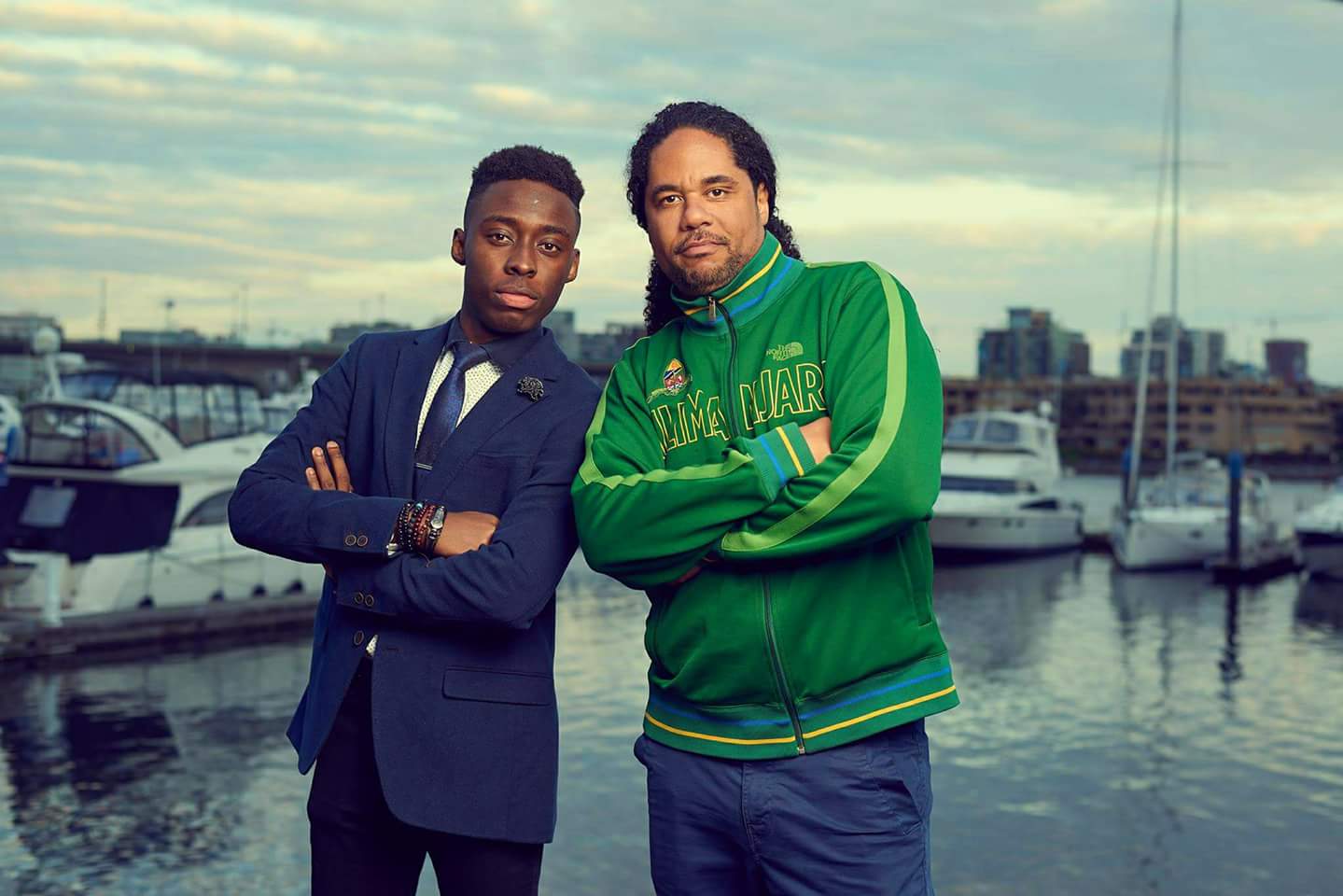
Chris Steffler (right)
What inspires you most about your work?
What inspires me most about my work is getting to see how creative people light up once we begin their journey of music production. It’s in the process where they discover that their musical vision can be cultivated in the minds of a team of like-minded creators. I get jacked when they say, ”It’s really happening” It makes me feel like I am helping people realise something that they have either thought about for years, created and abandoned, or never thought they had what it takes to complete.
Being an addict helps me. It has taught me what it feels like to be stuck, but with hard work, support, and a plan; anything is possible.
What’s something you wish people knew about addiction?
I wish people knew that addiction does not discriminate and that most people that suffer from addictions are usually extremely intelligent and creative people. Far too many people see addicts as “less than” or that they lack what it takes to get sober. Or even worse, that they don’t want housing. I have found that it is usually the most intelligent people who struggle the most to get sober. I wish addicts and those who judge addicts knew this. While it may have been traditionally thought addiction is more prevalent in one community over another; the truth is I have seen addiction devastate men, women and families from all walks of life. When addiction gets a grip on people, they need the support of the community and medical professionals to help them; without judgement. I have seen way too much judgement. If people were to see me the first day of detox, and then see me today, they would not believe I was the same person. That first day at detox, you would also not have guessed that I came from a good family, am highly educated, and a leader since I was a kid. We all have a story.
What’s the greatest piece of advice you wish everyone could hear?
The best pieces of advice I have received are, “keep it simple”, “finish what you start to the best of your ability”, “keep your side of the street clean”, “do the next right thing”, “ask for help and give thanks”, and “help others”. I was advised that if I worked towards these, good things would come to me and others. So far I am blessed for knowing and realizing this truth.
How do you see the music industry growing and supporting each other during this time and beyond?
I feel like we need to come together like never before. As artists, concert producers, venue operators, music creators alike. We have always been at the mercy of venues and festivals as an effective way to get our music out to fans. Now that this has changed due to COVID, we need to find new ways to grow our industry. It’s exposed a weakness. One of the throughlines in my experience as an Artist Manager is that great things usually happen through healthy collaborations. I know so many music producers looking for singers, singers looking for songwriters etc. Making these connections has been a passion of mine, I hope to continue this as things evolve.
Learn more about Chris Steffler and his work at Mercury Artists



